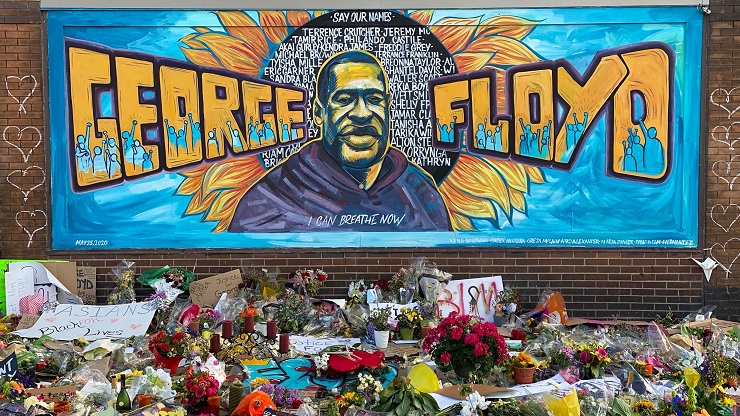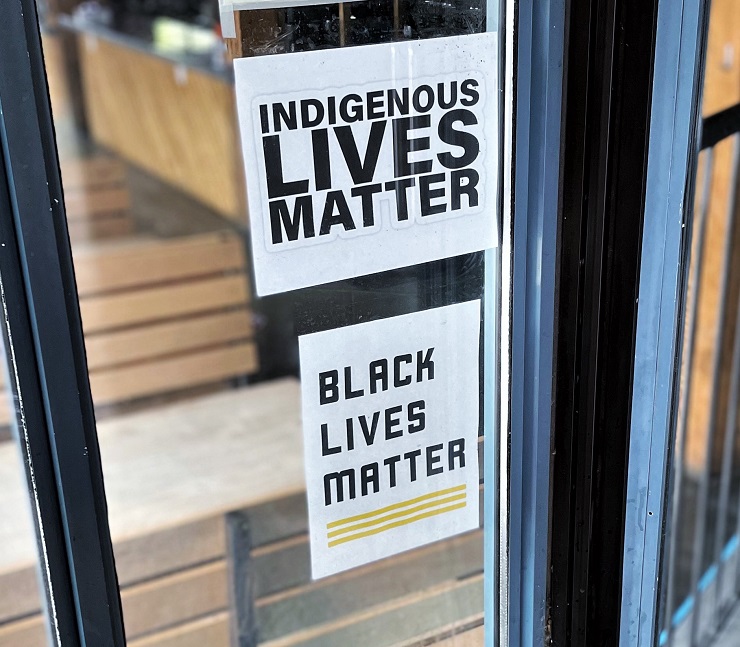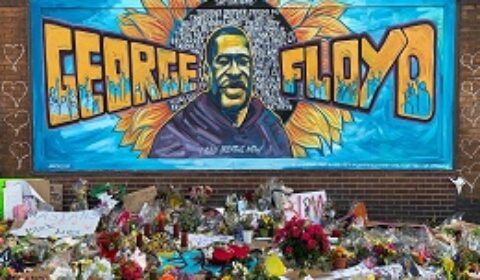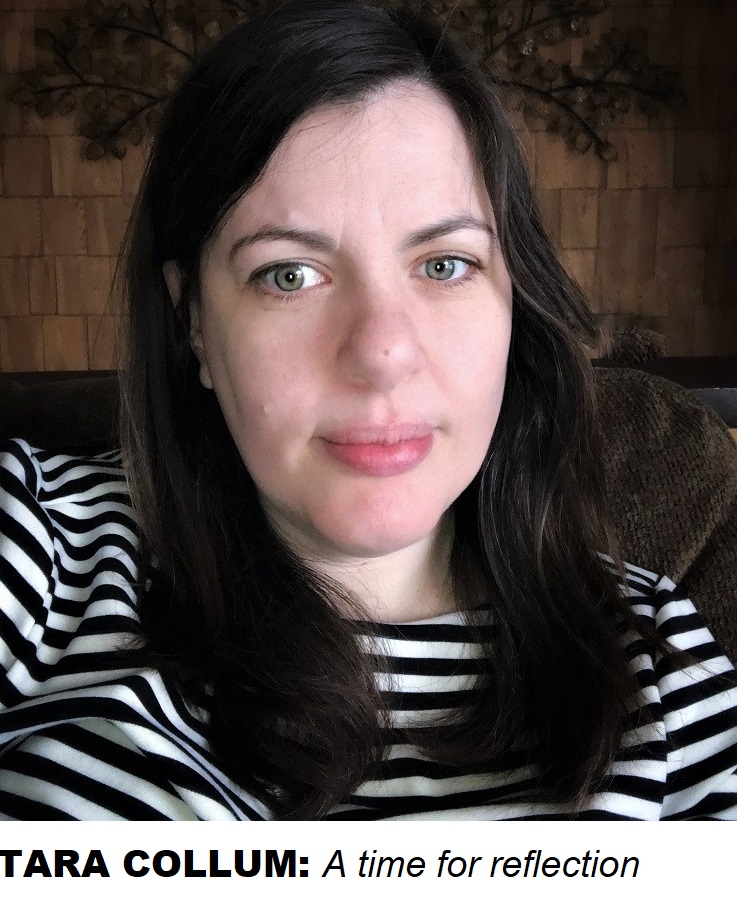TARA COLLUM: RACISM ISN’T ALWAYS AS OBVIOUS AS HATRED
TARA COLLUM | Special to MuskokaTODAY.com
Last summer, the marquee sign of a popular Roncesvalles Village hardware store read ‘All Lives Matter.’
It created controversy, and wasn’t up for long, before being replaced with Black Lives Matter, a more common and popular slogan posted in many store windows.
While many people can feel offended by the messaging, and believe that phrases like BLM are divisive, or insinuating that other lives don’t matter, that is not the intention.
If I wore a t-shirt that said, ‘My Disease is the Worst!’ I would be very surprised if someone shouted in my face that my disease isn’t the only one, and they are all equally bad.
There is a rich history of slogans from the wars to the civil rights movement, including ‘Am I Not a Man and Brother;’ and ‘Black is Beautiful.’
The new BLM movement sprung from the excessive use of police force on civilians, many caught on camera.
I was hesitant to watch the George Floyd video, but when I finally did it had me in tears.
And I’m not a person who cries watching the news. The first time the news felt more like a horror movie was Sept. 11.
Thank you to Darnella Frazier, the brave teenaged citizen who stood as a witness for George Floyd, and showed us not only Chauvin’s actions but his fellow officers who never intervened. Chauvin’s prison sentence is not the end of the story, but a start toward meaningful change.

The second was when a battalion of American police officers marched to squash a protest, and shot a teargas canister at bystanders on the front porch of their own home.
Racism isn’t always as obvious as hatred, but is often cold indifference.
Former NFLer Colin Kaepernick’s ‘Take a Knee’ movement is but the latest battle showing that racism is still a social problem where people are forced to take sides. It isn’t contained to our neighbours, and is also a problem in Canada.
In many provinces police are allowed to “card” or perform “street checks.” Officers check a person’s ID, collect their information and question their movements.
These supposedly arbitrary checks were mostly conducted on Indigenous and minority populations that believe they are unfairly targeted by police. Now many provinces have banned carding.
Muskoka youth may be familiar with run-in’s with police. While some are unwarranted, many aren’t.
Many have been escorted home by police after such shenanigans as drunkenly stumbling home from a pit party, or drinking underage in an uptown parking lot.
When I was in Grade 6 or 7, it wasn’t too many years removed from the Muskoka Centre being closed. There were neighbours on the next street over that bordered adults with special needs, and the impression by some was that they did this only for the money, as the adults often wandered our neighbourhood unsupervised.
This wasn’t usually a problem, but sometimes the adults had a dog with them that would run into the yards on my street. A family of South Asian descent were new to the neighbourhood, and they asked the neighbours to please keep the dog off their property. Things got heated, and the neighbours yelled at them to go back to their own country.
I was angry and shocked, and happy that the family’s next door neighbour came out to defend them.
Now I can see that race wasn’t the only issue. These neighbours were probably sensitive to the criticism they were receiving for poorly supervising the adults in their care, and felt safer lashing out to those they perceived as “outsiders.”
It can be easy to see things as one issue, but things are complicated and intersectional.

Many people were upset a few summers ago when BLM “highjacked” the Toronto Pride Parade, and wanted police banned from marching in uniform. It seemed unfair to officers of the LGBTQ+ community who wanted to display their pride, but at the same time, revellers discriminated against or targeted by police didn’t want to be made uncomfortable by their inclusion.
In Muskoka it can feel insulating from such matters, but they have a way of rearing their head.
I was very disappointed about the fuss a few years ago about Syrian refugees, and the unwelcome reception they received from some members of the community. I was happy to later learn that a Syrian family had a successful cultural food stand at the Gravenhurst Farmer’s Market.
While I am proud to be from Muskoka, others leave home and never look back.
Before reposting a meme on Facebook about tricky subjects, I’d caution considering if it plays into any negative stereotypes about people from small towns being “close-minded.”


June 26, 2021 @ 9:19 pm
Well said! We are not insulated from racism here and especially in light of the recent findings of the unmarked graves at residential schools, we need to start listening more to each other in order to truly build the loving and accepting communities we all want to live in!